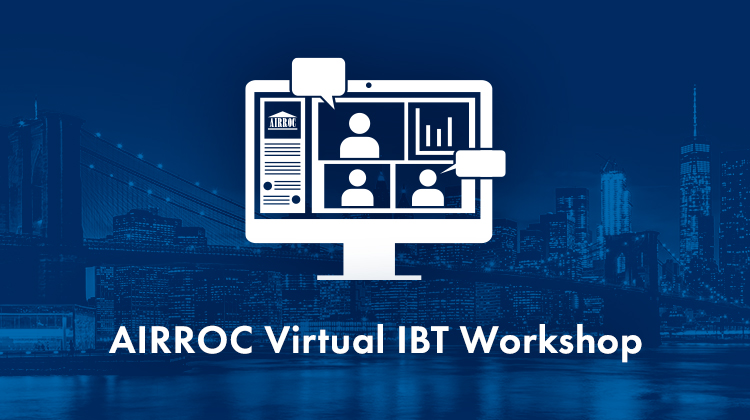Earlier this month AIRROC hosted its Insurance Business Transfer (“IBT”) Workshop, which brought together (virtually) industry leaders and experts for a half-day of presentations and discussions on the legal and regulatory landscape affecting the IBT space. A highlight of the day was a review of lessons learned during the recent, first-of-its kind transaction under Oklahoma’s IBT statute, presented by the companies, regulators and counsel involved in the deal. The workshop presenters made a strong case that new and developing laws, in Oklahoma and elsewhere, coupled with increased regulator familiarity and confidence in IBT transactions, has set the stage for more successful transfers in the US market. A video replay of this Workshop will be available “on demand” to members on AIRROC’s new Learning Management System to be launched shortly.
The day started with a focused yet thorough overview of corporate divisions and IBTs, with an emphasis on the key differences. Marty Rosemann, Senior VP and Global Head of Direct Claims, Swiss Re America and Mark Goodman, Partner, Freeborn & Peters LLP walked through what makes a division different from a transfer, and the important variations among the IBT laws in different states. Whether a division or IBT, the Panelists stressed the importance of due diligence to anticipate and satisfy the questions and potential objections of policyholders and regulators.
In the next session, Jonathan Bank, Of Counsel, Locke Lord LLP, chaired a panel of state regulators, stakeholders, and experienced UK counsel to discuss their view of IBTs. Elizabeth Dwyer, Superintendent of Banking and Insurance, Rhode Island and Scott White, Commissioner of Insurance, Commonwealth of Virginia shared their view that protecting consumers and policyholders is paramount, and a conservative approach that avoids any “bad deal” is in everyone’s interests. To that end, the NAIC has established a working group to prepare a White Paper on consistent statutory approaches and best practices. Roger Schmelzer, President and CEO, National Conference of Insurance Guaranty Funds, added his view that it is important that the industry lead in establishing uniform standards with robust procedures, or else it will see inconsistent procedures established piecemeal by courts across the country. Robert Romano, Partner, Locke Lord LLP, thought US regulators could take comfort in the success of Part VII Transfers in the UK (which has been a model for some states IBT statutes). None of the numerous transfers under Part VII has resulted in insolvency.
Conference attendees next heard a step-by-step walkthrough of Enstar’s first-of-its-kind transaction under Oklahoma’s IBT, between Providence Washington Insurance Company and Yosemite Insurance Company. The august Panel included Glen Mulready, Commissioner of Insurance, Oklahoma, Robert Redpath, Senior VP and Corporate Counsel, Enstar, Chris Reichow, US General Counsel / Executive Vice President, R&Q, Steve Dicenso, Principal and Consulting Actuary, Milliman and John Sparks, Odom & Sparks (panel chair). The key takeaway was the importance of patience and preparation. There is a learning curve for everyone involved in a new, court-managed process, even in a state at the forefront of the industry. One lesson Enstar learned was that the preparation of the communication plan is key – the Oklahoma court was intensely interested in ensuring appropriate notice to the large number of potentially affected policyholders.
The day ended with a “Super Panel” of all the previous speakers taking audience questions, moderated by Bill Bouvier, Vice President, Director, Assumed Reinsurance, RiverStone and
Tom Mendralla, Vice President, Portfolio Management, Swiss Re America. Most of the questions focused on where we go from here. The Panelists were confident that interest in IBTs was growing, and that there exists a pipeline of appropriate transactions ready to be completed. This organic growth will be assisted by the NAIC White Paper on best practices and, hopefully, buy-in from the broker community.
